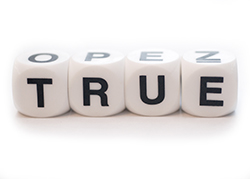Because so many people seem to associate my guided meditations with Mindfulness, many of whom both use our CDs and listen to our podcast, I often find myself wondering exactly what Mindfulness is. I've often thought that my meditations have more to do with "mindlessness" than "mindfulness", and have thought of writing a post about that. It took a really interesting blog post in the New York Times today to get me to begin to tackle that subject. Check it out -- peoples' comments are really interesting to read: Being and Mindfulness - Judith Warner Blog - NYTimes.com.
Well, I said "begin to tackle that subject" and I am literally only beginning to try to formulate by thoughts about it and don't know if I'll ever get past the beginning on this one. For one thing, having practiced meditation for a long time before ever hearing of Mindfulness Meditation, I've never really be able to relate to mindfulness instructions when I come across them, so how can I compare it with what I do?
Also, it seems like Mindfulness isn't just a technique of meditation, but is often (if not always) associated with an intention to be a certain kind of person or to behave in a certain way -- a way that is better than ones current way of being or behaving. My involvement with meditation has had to do with self-awareness and with inner peace, but I've never been involved in order to be a better person. If anything, my hope has been to learn to accept myself the way I am. I'm not saying that I don't want to be a "better" person. Who doesn't (depending on how each person defines that)? I just never saw meditation as a means to that unless it came as a welcome by-product to greater ease with myself and with life.
As I write, I am beginning to understand some possible distinctions between Mindfulness Meditation and what I do. I say "possible" because as I said I don't really know Mindfulness Meditation. I also suspect that all Mindfulness Meditation is not alike. Certainly not every Mindfulness teacher understands and teaches it in the same way. Certainly not everyone who practices it understands it in the same way. Also, Mindfulness seems to involve more than a technique of meditation. It seems to involve a way of being in the world -- something you apply outside of a period of meditation practice. While I do think meditation "my way" creates changes outside of meditation, there is no specific recommendation to try to consciously make something happen in daily life.
So why do I feel my meditations have to do with Mindlessness rather than Mindfulness? My sense is that in Mindfulness Meditation there is a kind of noting of things. There is the idea that here I am being mindful. So in Mindfulness there is a awareness of "me" sitting here "being mindful". The difference I'd see is that in my meditations (the ones like "Simply Being" that don't have a specific focus), there is a letting go of what is noticed. Noticing is not noting. It's not a taking note of what you experience, or a labeling of it. It's more of a letting go of what is noticed. We aren't looking for anything. Noticing happens spontaneously. We are spontaneously aware of what is going on. We don't need to try to notice something. It just comes into our awareness. Or it doesn't. Doesn't matter. It's just a matter of letting go when we become aware that the mind has gotten involved, or tangled up with, what is being experienced.
As I write, I see the impossibility of conceptualizing what happens in meditation. And perhaps this is my difficulty with understanding Mindfulness Meditation. Perhaps it is the problem that is inherent when we try to put the meditative experience into words. It sounds like we mean something we don't really mean. I can certainly see that what I was just writing in the paragraph above could sound like something other than what I mean.
So I'll just stop. I began to try to write about Mindlessness vs Mindfulness, and I found that I can't really. But I think you might enjoy the New York Times piece I mentioned, and I'd love to hear your thoughts and experiences with this subject. So for that reason, I'll go ahead and publish this post about what I can't really put in writing. I think this has liberated me from any compulsion to explore how what I do is different than Mindfulness (if it is). It doesn't really matter in the end. I'm happy with what I'm doing!
I'd love to hear your thoughts on this and welcome your comments.



